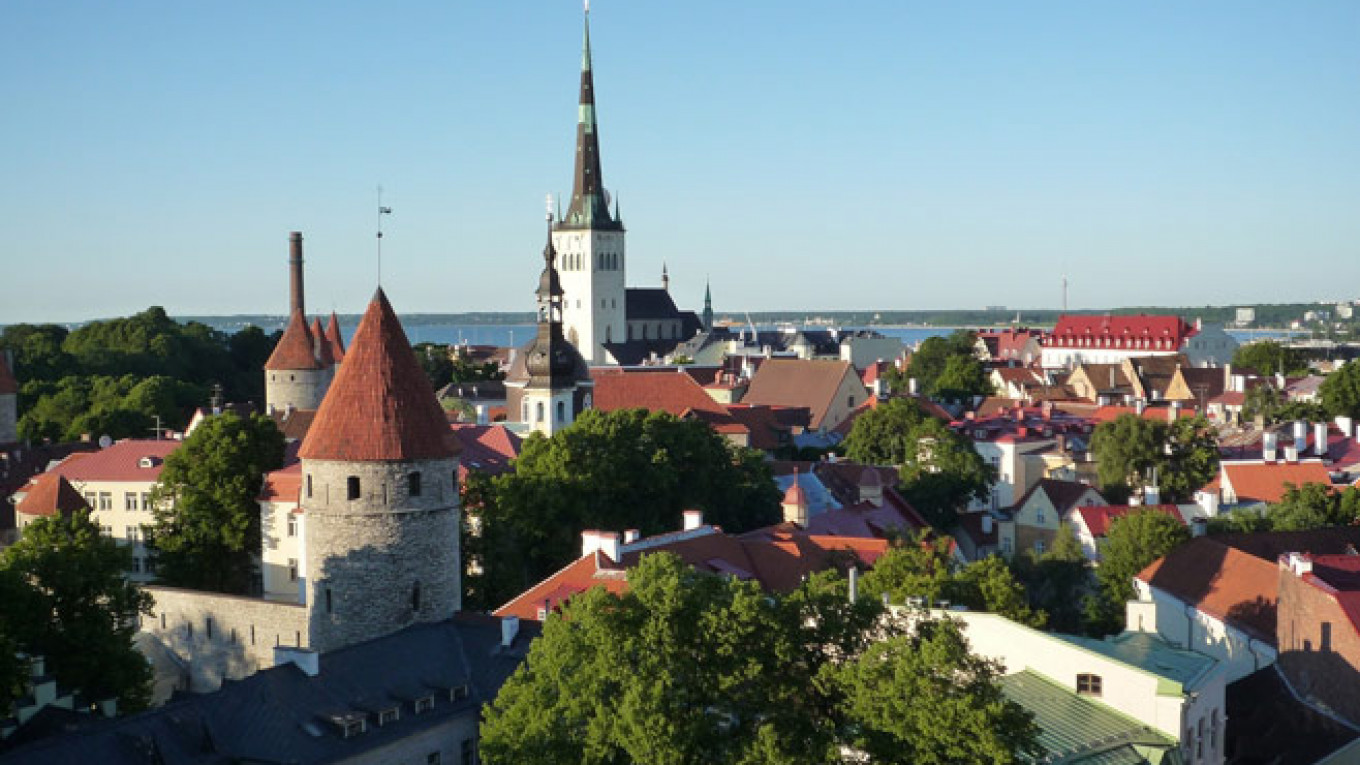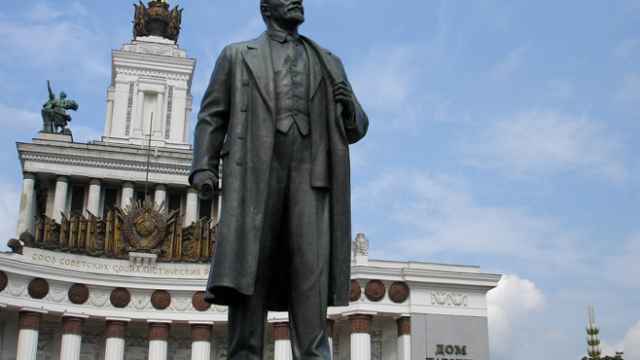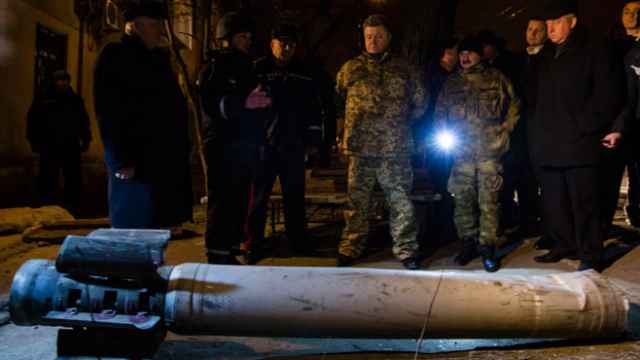Since the day the first Russian boots marched onto Ukrainian soil, speculation has been rife that the Baltic states are at risk of becoming the next targets of Russian militarism as Moscow seeks to forcefully reassert its sphere of influence across the former Soviet states. However, this argument that the Baltics are next is based on a flawed comparison with Ukraine that obscures key differences that make a Russian intervention unlikely.
The analogy is a tempting one: like Ukraine, Latvia and Estonia have large minorities of ethnic Russians living within their borders. Twenty four percent of Estonia's population is comprised of ethnic Russians, while Russians make up 26 percent of Latvia's population. Lithuania is the outlier with a Russian population just under 6 percent.
Furthermore, many Baltic Russians carry more than two decades of grievances over citizenship, language, and cultural policies that have these communities feeling marginalized from mainstream political and economic life in the countries that they call home.
While older Russians migrated to the Baltics during the Soviet period, many younger and middle-aged Russians were born in the Baltics and have never lived outside the region. Regardless of where one falls on the debate over stringent post-Soviet citizenship policies and language requirements in the Baltics, there can be no doubt that cultural grievances continue to resonate among the Russian minorities. As such, many experts have warned that Russia may try to use the Baltic Russians as an entry point to execute a strategy of hybrid warfare, much as it seized on protest movements in Crimea and the Donbass as a basis for military intervention in Ukraine.
While these similarities may seem strong at first glance, they mask crucial differences between the dynamics in Ukraine and those in the Baltics, differences that make a Russian intervention in the Baltics unlikely.
As we have learned from the Ukrainian intervention, hybrid warfare depends on pre-existing favorable conditions among the population of the target country. It was the dissatisfaction with the new government in Kiev that existed among ethnic Russians in Crimea and the Donbass that provided the key opening for Russia's intervention in those regions.
This dissatisfaction offered both a justification for Russia's intervention in defense of Russian compatriots as well as suitable cover for the Russian soldiers in unmarked uniforms — the "little green men" — who served as the vanguard of the intervention. Russia could continue to claim plausible deniability as long as its forces could blend in with the native separatist fighters in Ukraine.
Contrary to popular myth, the Baltic states and their Russian populations are in a very different position than Russian compatriots in Ukraine. True, they have significant grievances, many of which are well founded.
But to date there is not strong evidence of active separatist groups or separatist-minded enclaves in the Baltic states as there were in Crimea prior to Russia's intervention. Whereas polling in Crimea before the annexation showed clear majorities in favor of reunification with Russia, similar secessionist majorities are absent among the Baltic Russians.
In fact, interviews with Baltic Russians suggest that while they continue to feel a close cultural, emotional, and spiritual connection to Russia, many increasingly appreciate the benefits of living in the Baltic states, even in the face of perceived discrimination and marginalization.
This is especially true of younger Russians who have increasingly enjoyed the benefits of Baltic membership in the European Union. Visa-free travel throughout the EU — a benefit available even to those Russian residents of the Baltics who lack citizenship — along with the significant boost in living standards that has come along with EU membership offer powerful reasons to stay part of the Baltic states.
And even the older generations have benefitted from 24 years of independence: While the average pension in Narva, Estonia is approximately 370 euros per month, across the river in Ivangorod, Russia pensions average about 100 euros. These are comparisons that inevitably lead Baltic Russians to question whether they really would be better off living as part of Russia.
Furthermore, despite the exclusionary policies of the 1990s, there is evidence that Baltic Russians today are becoming better integrated into their countries' political, social, and economic lives. Today, children born to non-citizens in Latvia and Estonia are automatically granted citizenship, a reversal of 1990s policies. Lithuania, breaking from its neighbors, had automatically granted citizenship to all residents in 1991.
Additionally, increased resources and assistance are now available to non-citizens seeking to gain citizenship through naturalization, including support for language study necessary to pass citizenship exams. These efforts, along with changes required as a condition of EU membership, have made a difference.
Since 1992, the proportion of residents of Estonia who are classified as "non-citizens" has fallen from 32 percent to 6.3 percent in 2015. Latvia has been less successful, with 12 percent of the population holding "non-citizen" status, down from 29 percent in 1995. Roughly 33 percent of Latvia's Russians are still classified as non-citizens, but this represents a marked improvement since 1992.
This is not to say that everything is rosy for Baltic Russians — non-citizens and those who do not speak the titular language lack voting rights, are often barred from civil service, are more likely to be engaged in blue collar occupations, and generally earn lower wages and salaries than do members of the majority nationality.
But they are not clamoring for the exit, nor are they putting up welcome signs along the highways leading from Russia. As one Russian resident of Riga put it, "what I don't want is for Putin to protect me. I don't want him to come one day to help the 300,000 non-citizens in Latvia." These are hardly the sentiments of a fifth column.
However, even prior to the Ukrainian intervention, the Kremlin has actively attempted to shape public opinion among Baltic Russians through a variety of media outlets, political parties and civic organizations. After all, most Russians in the Baltic region get their news from sources based in or funded by Russia. Moscow plays a strong propaganda game, but most efforts to foment dissent and instability within the Baltics have failed to resonate thus far in the way that they did in Crimea and the Donbass.
This doesn't mean that Moscow will not keep trying, though these efforts will be designed to disrupt and destabilize, not to prepare the groundwork for invasion. In the meantime, the governments of the Baltic states must redouble their efforts to integrate their Russia citizens and non-citizens alike while respecting the cultural identities of those populations.
Ensuring that Baltic Russians are equal members of the political, economic and social life of the countries serves as the best insurance policy against Moscow's efforts to use compatriots as pawns in its wider game for influence in the region.
Robert Person is an assistant professor of international relations at the United States Military Academy at West Point. The views expressed in this article are those of the author and do not reflect the official policy or position of the Department of the Army, Department of Defense, or the U.S. government.
A Message from The Moscow Times:
Dear readers,
We are facing unprecedented challenges. Russia's Prosecutor General's Office has designated The Moscow Times as an "undesirable" organization, criminalizing our work and putting our staff at risk of prosecution. This follows our earlier unjust labeling as a "foreign agent."
These actions are direct attempts to silence independent journalism in Russia. The authorities claim our work "discredits the decisions of the Russian leadership." We see things differently: we strive to provide accurate, unbiased reporting on Russia.
We, the journalists of The Moscow Times, refuse to be silenced. But to continue our work, we need your help.
Your support, no matter how small, makes a world of difference. If you can, please support us monthly starting from just $2. It's quick to set up, and every contribution makes a significant impact.
By supporting The Moscow Times, you're defending open, independent journalism in the face of repression. Thank you for standing with us.
Remind me later.






